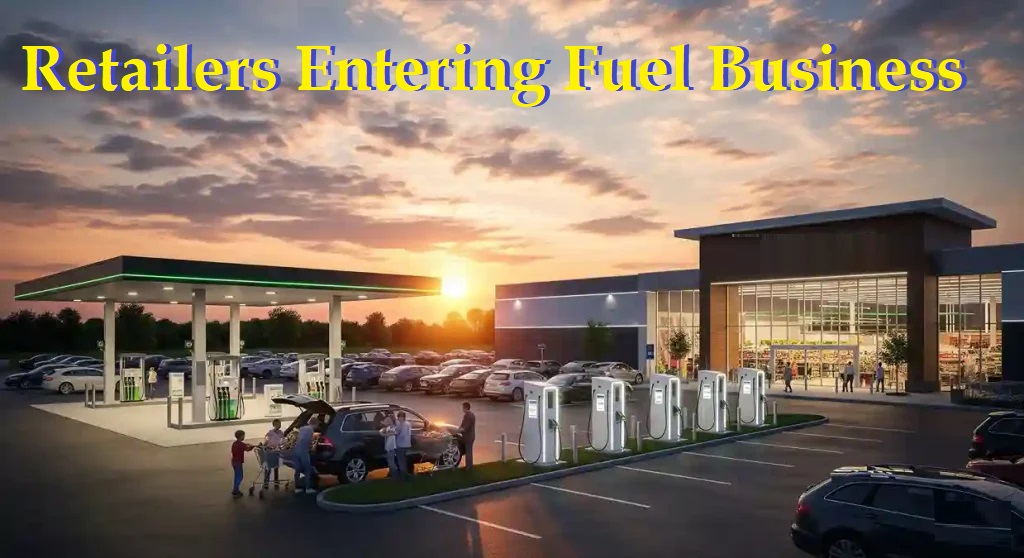
Retailers Entering Fuel Business – Opportunities, Strategies & Market Insights
Retailers Entering Fuel Business: Opportunities, Challenges, and Future Trends
The current retail panorama has undergone large transformation over the past few a long time. From supermarkets to hypermarkets and from on line shopping systems to omnichannel reviews, outlets have continually sought new methods to capture client interest, boom emblem loyalty, and diversify sales streams. In this context, shops entering the fuel commercial enterprise has emerged as an interesting and strategic development. At first glance, retail and fuel can also appear like separate industries, but on nearer inspection, the overlap among the 2 creates a completely unique synergy this is proving to be pretty treasured in these day’s competitive marketplace. retailers entering fuel business.
The integration of gas stations with retail shops is not a brand new concept, however in recent years, its recognition has surged, in particular amongst huge stores and supermarket chains. By combining comfort buying with gas offerings, stores are aiming to create one-stop locations for consumers, presenting them unequalled performance and time financial savings. This article explores the numerous factors of this trend, which include its drivers, opportunities, challenges, worldwide examples, and future potential, while also presenting a deep dive into why outlets are more and more investing in the gas business.
Why Retailers Are Entering the Fuel Business
The decision for retailers to enter the gas zone is not just about selling gas; it’s about capturing patron behavior at a couple of touchpoints. Today’s customers are in search of convenience, speed, and seamless shopping reviews. A retail chain that provides gasoline offerings isn’t simply promoting petrol or diesel—it’s far positioning itself as a multi-software logo capable of meeting multiple consumer wishes in a single visit.
Several factors drive this integration:
- Increased Footfall: Fuel stations appeal to day by day commuters, ensuring a regular glide of potential clients to adjoining retail shops.
- Cross-Selling Opportunities: Retailers can sell grocery, liquids, snacks, or even loyalty packages to gasoline clients.
- Competitive Differentiation: In saturated retail markets, providing fuel services offers retailers a completely unique aspect over competitors.
- Revenue Diversification: Fuel income bring in a further earnings circulate, lowering dependency on traditional retail margins.
- Brand Visibility: Fuel stations are positioned in high-site visitors regions, improving the store’s ordinary brand presence.
The Strategic Importance of Fuel in Retail
For stores, fuel services are not only a business extension—they are a approach to lock in purchaser loyalty. Customers fueling their automobiles often at a store-owned station are much more likely to make brief purchases inside the adjoining store. This no longer simplest will increase basket length however additionally enhances repeat visits.
Additionally, the gas-retail version helps the convenience economic system. Consumers nowadays fee time more than ever, and the capability to refuel even as selecting up groceries or espresso is a powerful proposition. Retailers like Walmart, Tesco, Costco, and Carrefour have embraced this trend globally, reinforcing their positioning as holistic carrier companies.
Opportunities for Retailers inside the Fuel Business
The possibilities on this area are huge. Below are a few key regions where retailers advantage from getting into the gasoline marketplace:
Increased Customer Retention
Retailers can integrate loyalty packages where customers earn factors now not simply on groceries but additionally on gas purchases. This twin advantage ensures extra retention.
Expansion of Convenience Stores
Fuel stations frequently host mini-marts or convenience shops, allowing shops to sell snacks, drinks, and necessities, thereby growing universal income margins.
Energy Transition Opportunities
As the sector shifts towards sustainable energy, outlets can leverage fuel stations to provide electric powered car (EV) charging factors, positioning themselves as destiny-equipped businesses.
Enhanced Profitability via Ancillary Services
Services like automobile washes, tire checks, and short-provider meals retailers upload extra revenue layers past just fuel.
Challenges Retailers Face in Entering the Fuel Business
Despite the attractive potentialities, outlets face numerous demanding situations when increasing into the gas industry.
- High Capital Investment: Setting up gas stations requires substantial infrastructure, protection compliance, and regulatory approvals.
- Thin Margins on Fuel Sales: Fuel itself gives limited profit margins, making ancillary income vital for achievement.
- Environmental and Safety Concerns: Fuel operations include environmental risks, requiring stringent protection protocols.
- Competition with Established Players: Fuel corporations with a long time of enjoy dominate the marketplace, making access hard.
- Regulatory Compliance: The gasoline enterprise is closely regulated, requiring adherence to complicated prison frameworks.
Global Examples of Retailers inside the Fuel Business
To understand the trend higher, allow’s take a look at how exclusive stores the world over are coming into the gas quarter.
| Retailer | Country | Fuel Business Strategy | Additional Services |
|---|---|---|---|
| Walmart | USA | Operates fuel stations adjacent to its stores | Loyalty programs, grocery tie-ins |
| Tesco | UK | Tesco petrol stations integrated with supermarkets | Clubcard loyalty points, convenience stores |
| Costco | USA/Canada | Offers discounted fuel to Costco members | Member-only perks |
| Carrefour | France & Global | Operates fuel stations near hypermarkets | Expands convenience shopping |
| Reliance Retail | India | Ties with fuel suppliers for integrated outlets | Expanding into EV charging |
These examples display that gas retailing is not just about petrol or diesel—it’s about growing an environment where fuel is the gateway to broader retail engagement.
The Role of Technology in Fuel Retail Integration
The present day gas-retail business model is predicated heavily on technology. Key technological enablers include:
- Mobile Apps for Fuel Payment and Discounts
- Digital Loyalty Programs related to retail buying
- Data Analytics to examine fuel-buying styles and move-sell efficaciously
- EV Charging Technology integrated into gasoline stations
- AI-pushed Inventory Management for comfort stores at stations
By leveraging digital solutions, outlets not most effective streamline gas operations but also construct a seamless patron enjoy that bridges on-line and offline retail.
Future of Retailers inside the Fuel Business
The future of this fashion is intently tied to the global shift towards renewable power and electric powered mobility. As gasoline consumption styles evolve, shops will need to evolve. The maximum a hit players will probably be folks who:
- Transition gas stations into multi-electricity hubs imparting petrol, diesel, EV charging, and even hydrogen.
- Invest in clever convenience stores with computerized checkouts.
- Create subscription-based totally loyalty ecosystems combining retail, gas, and digital offerings.
- Form strategic partnerships with strength businesses to mitigate risks and proportion knowledge.
Conclusion
The phenomenon of retailers coming into the gas enterprise represents a natural evolution of the retail enterprise in a global that prioritizes convenience, efficiency, and purchaser-centric services. While demanding situations continue to be, the opportunities for boom, diversification, and lengthy-time period brand loyalty are tremendous. From global giants like Walmart and Tesco to rising gamers in developing markets, the mixing of gas into retail underscores a broader transformation in which limitations between industries blur, developing holistic client ecosystems.







